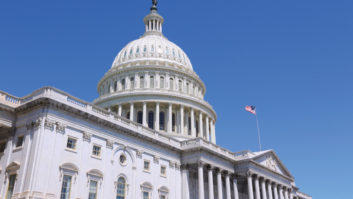The author is a past president for the International Association of Audio Information Services (IAAIS) and manager of the Minnesota Radio Talking Book Network. IAAIS commentaries are featured regularly atwww.radioworld.com.

Stuart Holland
For people in the Audio Information Service (AIS)/Radio Reading Service (RRS) industry, the connection between radio and disability is extremely obvious. The AIS/RRS industry began as a method of making the printed word accessible to those who could not read it visually, and initially, the only method of doing that was via radio. Since the very beginning, these services have featured the local newspaper, local publications, and local information — and a great deal of other printed periodicals and books.
The most obvious group of people who find that useful are those who are blind or visually impaired, but those who benefit are much more widespread — in fact, some estimates are that only about 20% of the people who could benefit from the services are actually blind or visually impaired. Those with dyslexia, brain trauma, and many other health conditions qualify for the services of the National Library Service (an arm of the Library of Congress) which coordinates a great deal of the reading material for that audience.
The AIS/RRS industry is not widely known. Most of the people in the wider radio industry are unaware of this branch of the media; most people with disabilities are also unaware of this accessibility service.
I am the manager of the Minnesota Radio Talking Book Network, which was the very first RRS in the world, having been established in 1969. As such, I was very interested to learn that the National Council on Disability would be meeting in Minneapolis this last July. Because of what we do, I was interested in hearing more about the National Council on Disability and how our services intersect with them.
The National Council on Disability was first established as an advisory council within the Department of Education in 1978, and became its own independent federal agency in 1984. In 1986, NCD recommended enactment of an Americans with Disability Act, and drafted the first version of the bill, which was introduced in the House and Senate in 1988. Since enactment of the ADA in 1990, NCD has continued to play a leading role in crafting disability policy, and advising the president, Congress and other federal agencies on disability policies, programs, and practices. They have recently been asked to work with the Small Business Administration to help advise them on policy for working with under-served communities.
NCD holds its quarterly meetings at various places around the country, each time focusing on a different aspect of disability related issues. The focus of the NCD meeting in Minneapolis was on disability and poverty, with three basic discussions: “The Connection Between Disability and Poverty;” “Economic Mobility Gridlock: Systemic Challenges & Incompatibilities & Contradictions;” and what would a system look like if it was designed to get a person with a disability out of poverty? For each of those discussions, there was an invited panel of speakers.
Speaking on disability and poverty, we were reminded that there are many definitions of disability, but the one that is used by government assistance is strictly a medical model and it deals with employment. “The law defines disability as the inability to engage in any substantial gainful activity (SGA) by reason of any medically determinable physical or mental impairment(s) which can be expected to result in death or which has lasted or can be expected to last for a continuous period of not less than 12 months (ssa.gov).”
The panel mentioned that poverty is often both the cause and consequence of disability. One-third of people with disabilities live below the poverty level, and there is a huge disability pay gap. People mention the gender pay gap (men earning more than women), but the disability pay gap is much larger with able-bodied people earning much more than people with disabilities while doing the same work. People with disabilities are twice as likely as nondisabled people to lack any discretionary cushion which can help at times of financial need.
The issue of disability and poverty is intricately tied to government policy. Because of the limits on allowable earned income, it often makes no sense to people to seek employment, though education and employment are the best ways to escape poverty.
The government is greatly at fault for the current levels of poverty in this country. As an example, the limits for allowable income for SSI were set in the early 1970s and have risen only marginally instead of rising with the cost of inflation. What the state government does varies widely from state to state. Some states provide many services; others only the bare minimum.
The question was posed, “What are the systemic and specific barriers that have made financial independence difficult for you?”
One panelist mentioned that the general public and the educational system expects too little of people with disabilities. The assumption is that a person with a disability will not be able to manage higher education or work in competitive employment. Neither of those assumptions is true.
As relates to poverty and access to AIS/RRS, the services are generally offered either free of charge or with a very low fee. That means that if poverty is also a condition of a person’s disability, it does not mean they are denied access to daily newspapers, magazines, or other information or reading material from their community. In fact, many AIS and RRS organizations offer financial information and announcements that would help people in poverty — whether that consists of programs about finding jobs, or PSAs about financial assistance.
People who wish to be kept informed about the actions of the National Council on Disabilities can request to be added to their email notifications by going to their website, www.ncd.gov . The next meeting will be in Detroit in early December and the meetings are always open to the public.










